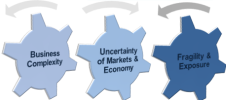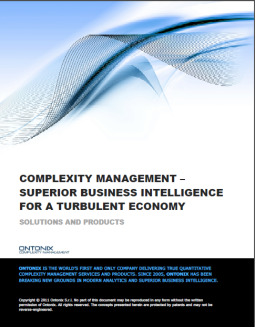Interest rates: uncertainty leaves consumers unsure over what move to make
Wednesday, 23 February, 2011 Leave a comment
Human nature is such that we would prefer an incorrect (but reassuring) model of the future to uncertainty! Would that still be the case if the level of appreciation “causality” and complex systems were improved?
I loved this quote about three inter-related factors: risk; complexity; uncertainty, from a recent discussion:
“We do not want to deal with the fact that we cannot know. Rather than accepting that fact we spend a lot of money, time, effort to generate the appearance of knowing, versus taking action and making sure we have flexibility to deal with what arises when we go on a path towards a goal we desire. Humans like to act with certainty even if it is delusional. One of the things that makes a great leader is a person that understands the uncertainty and is willing to deal with the path to the goal as the situation unfolds.”
Do the “indecisive” have any basis for faith in receiving “expert advice” from FS firms…unless it comes from an individual of impeccable and verifiable credentials earned over the last 20 years
With inflation roaring up to 4% on the Consumer Prices Index and an indecisive policy stance from the Bank of England consumers in general face more uncertainty than ever when making crucial financial decisions. This means that they will increasingly need to look for expert advice, giving an opportunity for providers of financial services…
via Datamonitor Research Store – Interest rates: uncertainty leaves consumers unsure over what.












